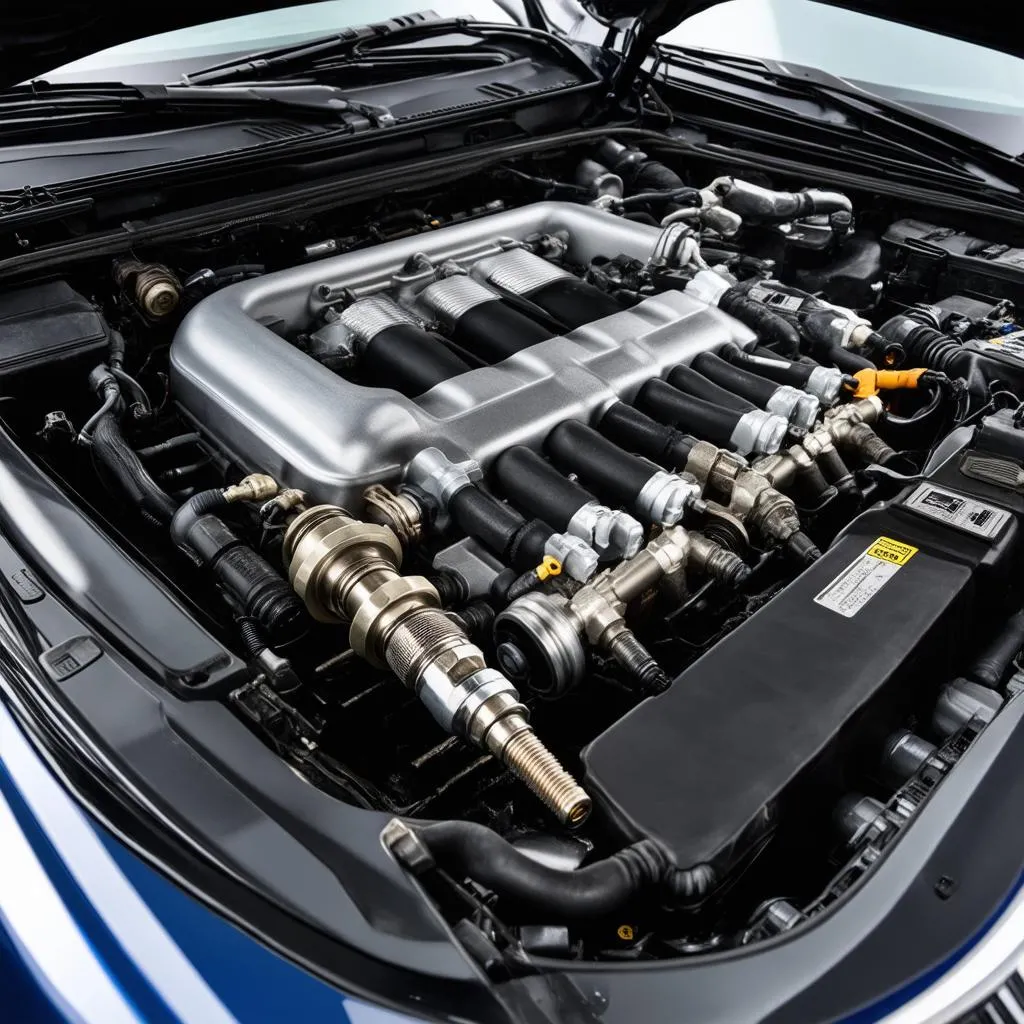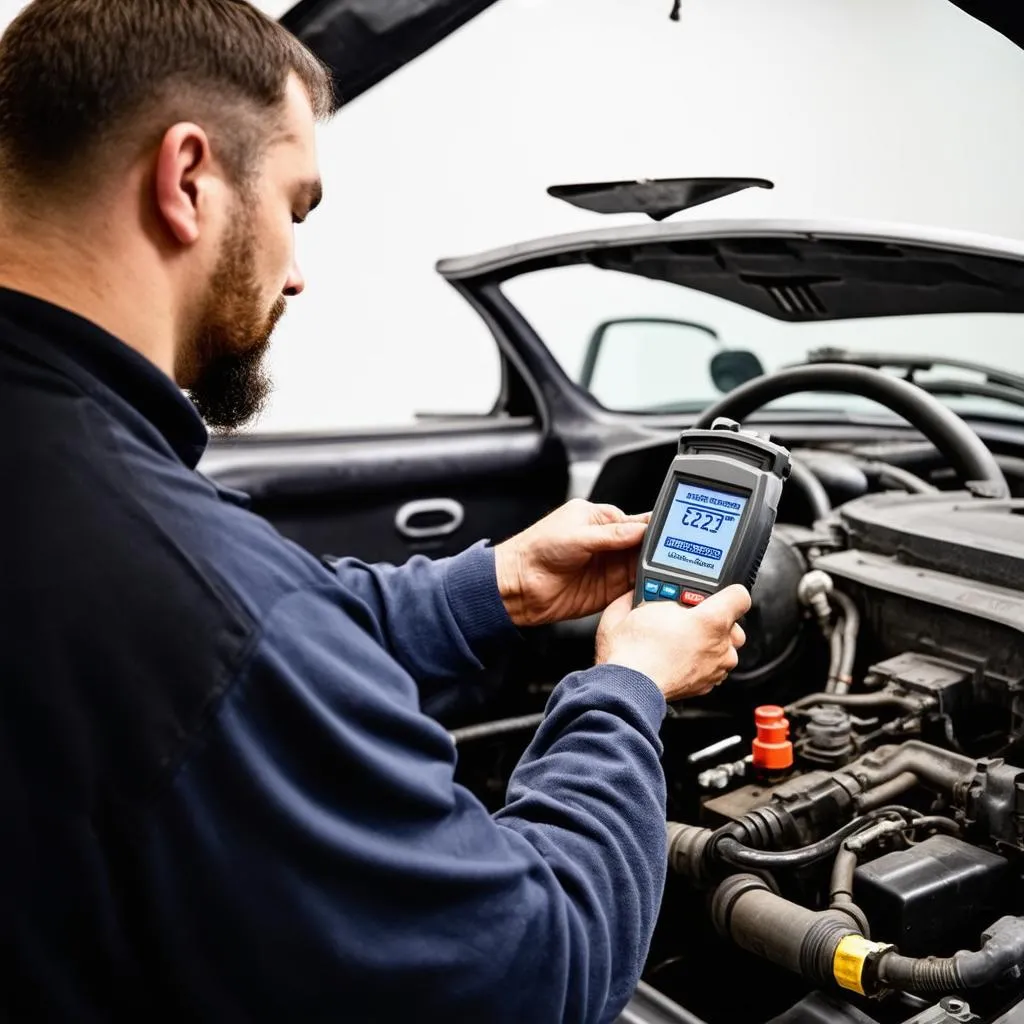Ever walked out to your car, greeted by that dreaded Check Engine light, and felt a wave of panic wash over you? We’ve all been there. You hook up your OBD scanner, hoping for a simple fix, only to find the cryptic code P0302 staring back. Now, you’re left scratching your head, wondering, “Could a loose gas cap really be the culprit behind this?” Well, buckle up as we dive into the intriguing world of OBD codes and debunk the myth surrounding P0302 and that often-blamed gas cap.
Decoding the Enigma: What Does P0302 Really Mean?
Before we point fingers at our humble gas caps, let’s shed some light on what P0302 actually signifies. In the intricate language of your car’s computer system, P0302 translates to “Cylinder 2 Misfire Detected.” Simply put, your engine’s control unit has sensed an irregularity in the combustion process within cylinder number two.
Think of it like this: imagine each cylinder in your engine as a miniature cannon. A misfire occurs when one of these cannons fails to fire its metaphorical shot at the right time. This disrupts the engine’s rhythm, leading to reduced performance, rough idling, and potentially even damage if left unchecked.
The Gas Cap Conundrum: A Likely Suspect or an Innocent Bystander?
Now, back to our original question: can a faulty gas cap be the mastermind behind a P0302 code? The short answer is…unlikely. While a loose or damaged gas cap can certainly trigger the Check Engine light, it usually results in codes related to the evaporative emissions system (EVAP). These codes often start with P04, indicating a leak in the system that prevents fuel vapors from being properly contained and sent to the engine for combustion.
However, attributing a P0302 code solely to a bad gas cap is like blaming a flat tire on a broken headlight. They are related to your car’s overall health but function independently.
Why a Loose Gas Cap Might Raise Eyebrows
You might be wondering why this myth persists. Well, a loose gas cap can indirectly impact your engine’s performance. When the fuel system isn’t properly sealed, it disrupts the carefully calibrated fuel-air mixture required for optimal combustion. In some cases, this imbalance can cause a temporary misfire, particularly during acceleration or under heavy load.
Moreover, in the world of car repairs, simple solutions often feel like the most satisfying. It’s tempting to believe that tightening a gas cap is all it takes to banish that pesky Check Engine light.
Getting to the Root of P0302: The Real Culprits
If a rogue gas cap isn’t the villain in our engine’s drama, then who are the usual suspects? A P0302 code often points to problems directly related to cylinder 2’s ability to fire correctly, such as:
- Worn Spark Plugs: Just like a tired candle wick struggles to maintain a flame, worn spark plugs can fail to ignite the fuel-air mixture effectively.
- Faulty Ignition Coils: These components provide the high voltage surge needed to create the spark. A failing coil can lead to weak or inconsistent sparks.
- Fuel Injector Issues: If the injector responsible for spraying fuel into cylinder 2 is clogged or malfunctioning, it can disrupt the combustion process.
- Vacuum Leaks: Any leaks in the intake manifold or vacuum hoses can disrupt the delicate air-fuel balance.
- Internal Engine Problems: In more severe cases, P0302 might indicate problems with the piston rings, valves, or other internal components.
 engine components
engine components
Troubleshooting P0302: A Step-by-Step Approach
Experiencing a P0302 code? Don’t panic! Here’s a practical guide to help you navigate the troubleshooting process:
- Start Simple: While a bad gas cap is unlikely the main culprit, it’s always a good idea to ensure it’s tightly sealed.
- Check for Visible Issues: Inspect the spark plug wires and ignition coils connected to cylinder 2 for any signs of damage, wear, or loose connections.
- Consult the Experts: If the issue persists, it’s best to consult a qualified mechanic. They have the tools and expertise to accurately diagnose the problem and recommend the necessary repairs.
 car diagnostics
car diagnostics
Beyond the OBD Codes: A Holistic View of Car Maintenance
While understanding OBD codes like P0302 is crucial, remember that your car’s well-being goes beyond deciphering cryptic messages. Regular maintenance, including timely oil changes, air filter replacements, and scheduled inspections, is essential for keeping your engine running smoothly and preventing costly repairs down the road.
Just as a balanced lifestyle contributes to good health, a well-maintained car rewards you with reliability and peace of mind on the road.
Need Help Deciphering Your Car’s Language? We’re Here for You!
At techcarusa.com, we understand that car troubles can be frustrating. That’s why we’re committed to providing you with the information and resources you need to make informed decisions about your vehicle’s care.
For expert advice and support with your car diagnostic tools, don’t hesitate to reach out to us via WhatsApp at +84767531508. Our team of automotive specialists is available 24/7 to assist you.
Drive with confidence, knowing that techcarusa.com is always there to guide you!